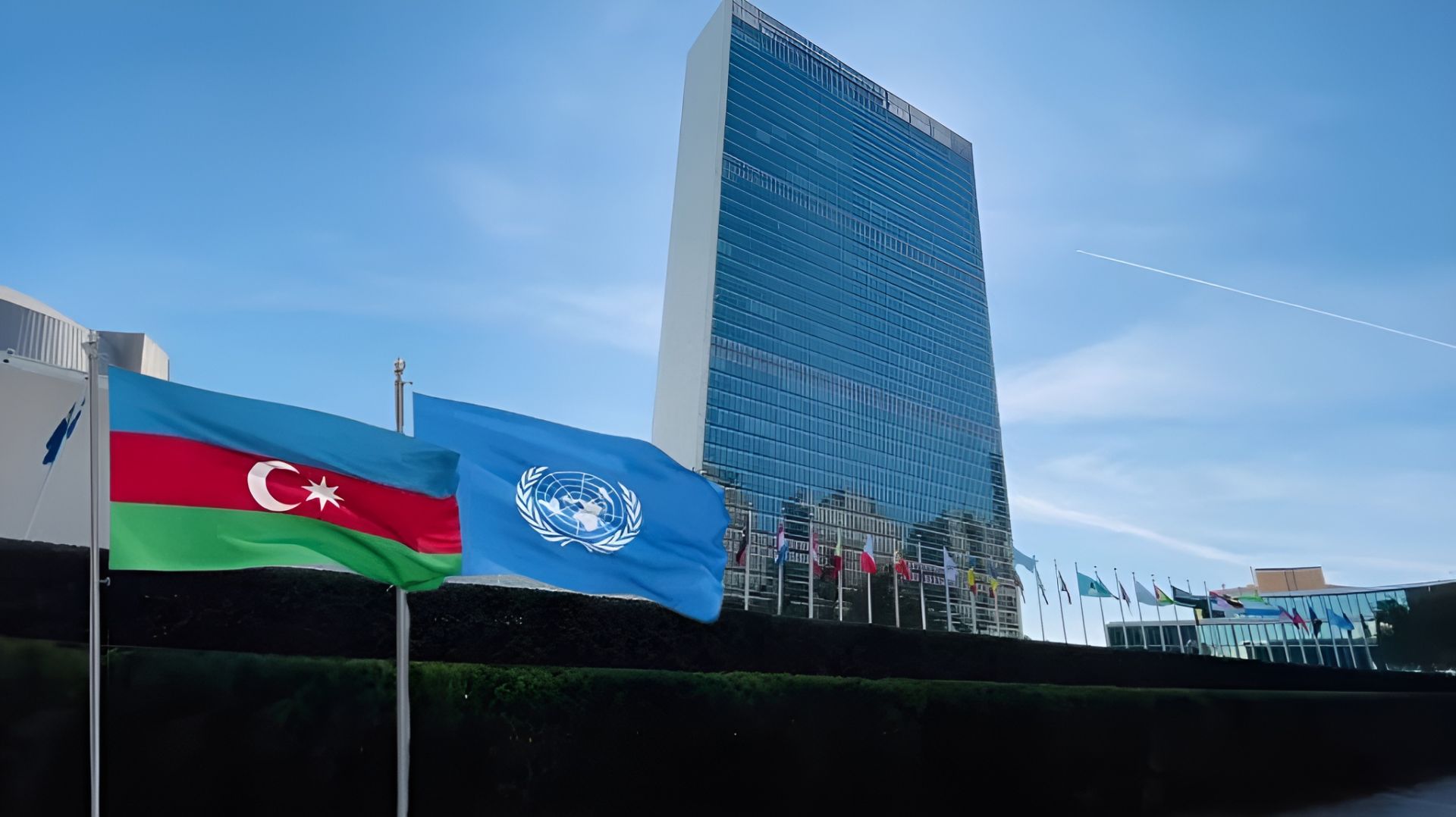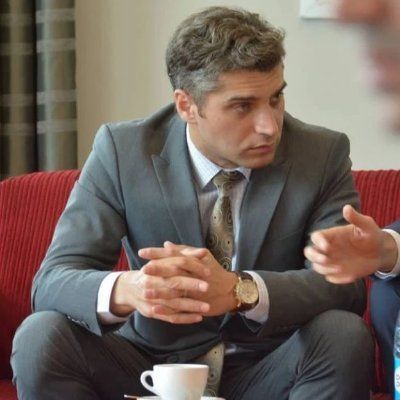Azerbaijan’s expanding global role: from peace initiatives to energy leadership

In international politics, attention is rarely given uninvited. When foreign leaders and business magnates queue up to meet one president, it is more than mere courtesy; it signals recognition of influence, reliability, and vision. During President Ilham Aliyev’s most recent diplomatic tour, this reality became unmistakably clear. Every bilateral engagement, every handshake, and every high-level dialogue occurred at the initiative of Azerbaijan’s partners, not as a protocol formality but as deliberate acts of interest. This dynamic demonstrates not only Azerbaijan’s rising prestige but also the transformation of the South Caucasus state into a credible and indispensable player in international affairs. Today, Azerbaijan is valued not merely for its geography or energy reserves, but for its peace diplomacy, investment potential, and ability to offer stability in a turbulent region.
Unlike many state visits that proceed under the weight of diplomatic ritual, the Azerbaijani President’s meetings carried a different tone. They were defined by urgency and substance. Finland, Greece, Kenya, Portugal, and Bulgaria, alongside the Secretary-General of the Council of Europe, all sought Baku’s perspective. Their objective was clear: to understand how Azerbaijan is re-shaping the security architecture of the South Caucasus and contributing to broader stability. Several European leaders even described Azerbaijan’s role in advancing the Washington peace agreement with Armenia (2025) as a “historic achievement.” That the initiative for these encounters came from the opposite side is itself telling; it confirms that Azerbaijan’s peace agenda is no longer local rhetoric but an internationally endorsed framework.
One of the most striking aspects of this diplomatic engagement was the acknowledgement by US President Donald Trump, who openly praised President Ilham Aliyev’s leadership and described their personal rapport in notably warm terms. Such statements do not exist in a vacuum. They reflect a recognition in Washington that Azerbaijan’s role as a bridge between East and West, North and South, is becoming too important to overlook. In a global landscape defined by rivalry and mistrust, personal diplomacy matters. The ability of the Azerbaijani leader to build direct, candid relationships with world leaders adds a personal layer to Azerbaijan’s statecraft, amplifying its institutional influence.
Beyond politics, economics remains the ultimate barometer of credibility. Azerbaijan’s president held substantive discussions with the heads of major US investment firms and international energy companies. These were not ceremonial encounters but negotiations anchored in mutual gain. US investment corporations, including some of Wall Street’s largest funds, explored opportunities in infrastructure, technology, and energy diversification. At the same time, meetings with European leaders, notably from Portugal and Bulgaria, underscored Azerbaijan’s growing stature as a key alternative gas supplier to the European Union. This dual track, securing American capital and serving as a reliable European energy partner, highlights Azerbaijan’s transformation from a resource exporter into a strategic node of the global economy. The signing of investment contracts worth $10 billion during forums such as the Caspian Business Forum confirms that international investors view Azerbaijan not as a risky frontier, but as a stable and profitable destination.
The 2025 Washington framework agreement between Azerbaijan and Armenia was at the centre of nearly every discussion. Leaders from across continents praised the Azerbaijani President’s determination to pursue peace after decades of hostility. Finland and Greece, for instance, labelled the process a “historic milestone,” underlining how a once-frozen conflict is now an example of diplomacy’s capacity to rewrite regional destinies. By consistently framing peace not as a concession but as an opportunity, Azerbaijan has succeeded in shifting international perception. The country is no longer seen through the prism of unresolved disputes but as a driver of reconciliation and stability.
Any assessment of Azerbaijan’s diplomacy must also acknowledge its long-standing engagement with the United Nations. Since gaining membership in 1992, Azerbaijan has steadily advanced a reputation for loyalty to international law and the UN Charter. The journey began with National Leader Heydar Aliyev’s landmark speeches in the mid-1990s, followed by President Ilham Aliyev’s multiple addresses at the General Assembly, including online interventions during the pandemic. Azerbaijan has served on the Security Council (2012–2013), chaired sessions on cooperation between the UN and the Organisation of Islamic Cooperation, and remains an active member of ECOSOC. Its hosting of global events such as the 2016 Alliance of Civilisations Forum and COP29 in 2024 further illustrates its ability to serve as a platform for dialogue on issues ranging from intercultural cooperation to climate change. Looking forward, the decision to hold the World Urban Forum in Baku in 2026 reaffirms Azerbaijan’s role as a convener of international initiatives.
Azerbaijan has equally demonstrated its responsibility through humanitarian action. As a donor state, it has extended assistance to more than 140 countries affected by conflict and natural disasters, including 80 nations during the COVID-19 pandemic. Such contributions may not dominate headlines, but they cement Baku’s image as a country that acts on principles, not only interests. The UN Secretary-General’s 2025 statement welcoming the peace framework signed in Washington further validated Azerbaijan’s credibility as a genuine peacebuilder. This recognition by the highest multilateral authority reflects years of consistent diplomacy and principled foreign policy.
Perhaps the most decisive pillar of Azerbaijan’s global influence is energy. With Europe searching for alternatives to Russian supplies, Baku’s capacity to deliver reliable gas flows has become a matter of continental security. Agreements with Portugal, Bulgaria, and others illustrate this shift from bilateral commerce to strategic partnership. Energy is not the sole currency, however. By linking its energy strategy with investment diversification, Azerbaijan ensures that oil and gas revenues fuel broader development goals, from technology and logistics to green energy projects. This diversification strengthens domestic resilience while amplifying Azerbaijan’s leverage abroad.
The pattern that emerges from President Ilham Aliyev’s recent diplomatic activities is unambiguous. Azerbaijan is no longer a passive participant in international forums but a country courted for its ideas, resources, and credibility. Its peace initiatives resonate beyond the Caucasus. Its investment appeal attracts global capital. Its energy supplies stabilise European markets. And its humanitarian diplomacy enhances its moral standing. Most importantly, these achievements are not isolated. They are the outcome of consistent leadership that positions Azerbaijan not as a small state punching above its weight, but as a mid-sized power reshaping its region and contributing to global stability. As world leaders increasingly take the initiative to seek Azerbaijan’s counsel, the message is clear: in the twenty-first century, Baku is not on the margins of history. It is at the centre of it.
Here we are to serve you with news right now. It does not cost much, but worth your attention.
Choose to support open, independent, quality journalism and subscribe on a monthly basis.
By subscribing to our online newspaper, you can have full digital access to all news, analysis, and much more.
You can also follow AzerNEWS on Twitter @AzerNewsAz or Facebook @AzerNewsNewspaper
Thank you!

